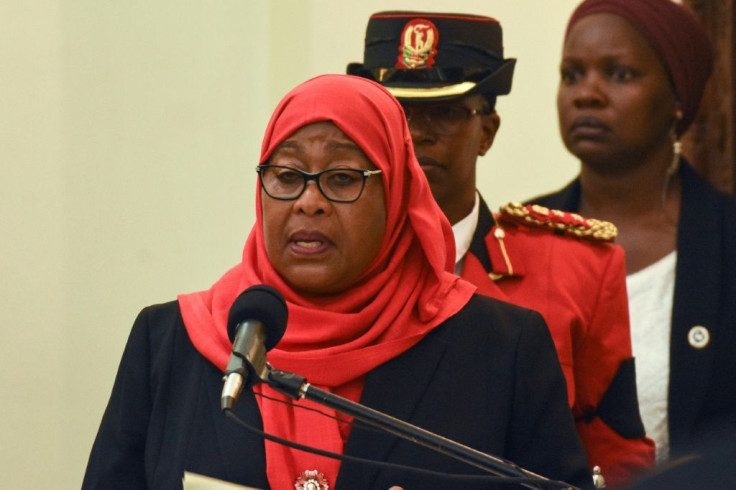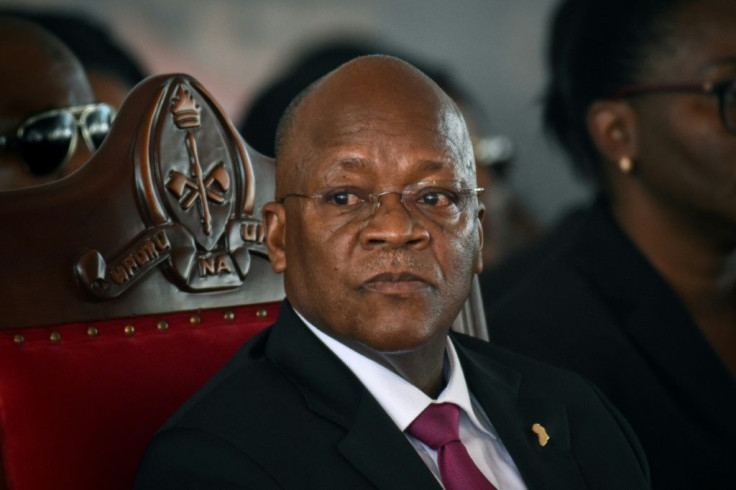Tanzanian President Says 'Not Proper' To Ignore Covid-19
Tanzanian President Samia Suluhu Hassan said Tuesday it was "not proper to ignore" the coronavirus pandemic, in a broad speech outlining several key policy shifts from her late Covid-sceptic predecessor.
Hassan also ordered an easing of restrictions on media that had been banned before she took office last month, and urged officials to win back the trust of foreign investors.
Hassan announced she would create an expert Covid taskforce to advise her government, saying they would canvass global opinion on the pandemic and make recommendations about "remedies" and policies.

"It is not proper to ignore it. We cannot reject or accept it without any evidence from research," Hassan told her newly-appointed permanent secretaries at a swearing-in ceremony in Dar es Salaam on Tuesday.
"They (experts) will tell us more about the pandemic, and advise us about what the world is proposing. We cannot accept everything as it comes, but we also cannot isolate ourselves as an island while the world is moving in a different direction."
Hassan became Tanzania's first female president last month following the death of John Magufuli, a Covid-sceptic who spent the better part of the pandemic denying coronavirus existed in his country, before his sudden death at 61.
Authorities said Magufuli, nicknamed the "Bulldozer" for his uncompromising leadership style, died of a heart condition on March 17 after a mysterious three-week absence, but his political opponents insisted he had coronavirus.

Hassan had vowed to "start where Magufuli ended" and all eyes have been on potential changes to the country's policies and openness regarding Covid-19.
Tanzania has not reported any Covid-19 data since April 2020 and few measures have been taken to curb the spread of the virus, which Magufuli said had been fended off by prayer, insisting face masks were not needed.
"We cannot be reading about Covid in the world and when you reach sections about Tanzania, one finds gaps," she said.

In another policy announcement, Hassan ordered that officials "free" media outlets banned by her predecessor, whose administration was criticised for a heavy-handed crackdown on the press.
"We should not give any room to say that we are suppressing media freedom," she said.
"Our regulations should also be clear for every offence and their punishment. We should not use force to ban media platforms."
No media outlets were mentioned by name, but last year Tanzania's Daima newspaper was indefinitely banned while broadcaster Wasafi TV, and online network Kwanza TV, were handed suspensions.
Hassan's announcements were welcomed by activists and government opponents on social media.
"Your becoming President means freedom for brave Tanzanian journalists, human right defenders and politicians who have been harassed, jailed and disappeared for doing their job," wrote Erick Kabendera, a reporter whose detention in 2019 for alleged financial crimes drew internatioanl criticism.
Tanzania was long seen as a haven of stability and democracy in an otherwise volatile neighbourhood, but alarm grew over a slide into autocracy under Magufuli's rule.
Most foreign media were not allowed into Tanzania to cover the 2020 presidential election in which Magufuli and Hassan, then his deputy, won a second term in a disputed vote.
Hassan also ordered a review of regulations and taxes related to foreign investment and urged officials to "work hard to regain" the trust of international business.
"Foreign investors have branded us unpredictable and that is a challenge. I want us all to attract foreign investment again," she said.
Under Magufuli, laws were passed granting Tanzania a greater stake in mining projects, allowing it to renegotiate contracts and increase royalties on exports, leading to high-profile legal disputes with some resource firms.
© Copyright AFP 2024. All rights reserved.





















